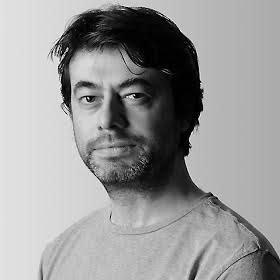“I think Billy would say there was no need to make any more songs. And maybe, as a fan, I felt the need for one more”: Freddy Wexler talks songwriting, producing, discovering Lady Gaga and restarting Billy Joel’s fire
“I told some very powerful people, ‘I found the next Madonna’. Four months later, she changed her name to Lady Gaga and the rest was history”
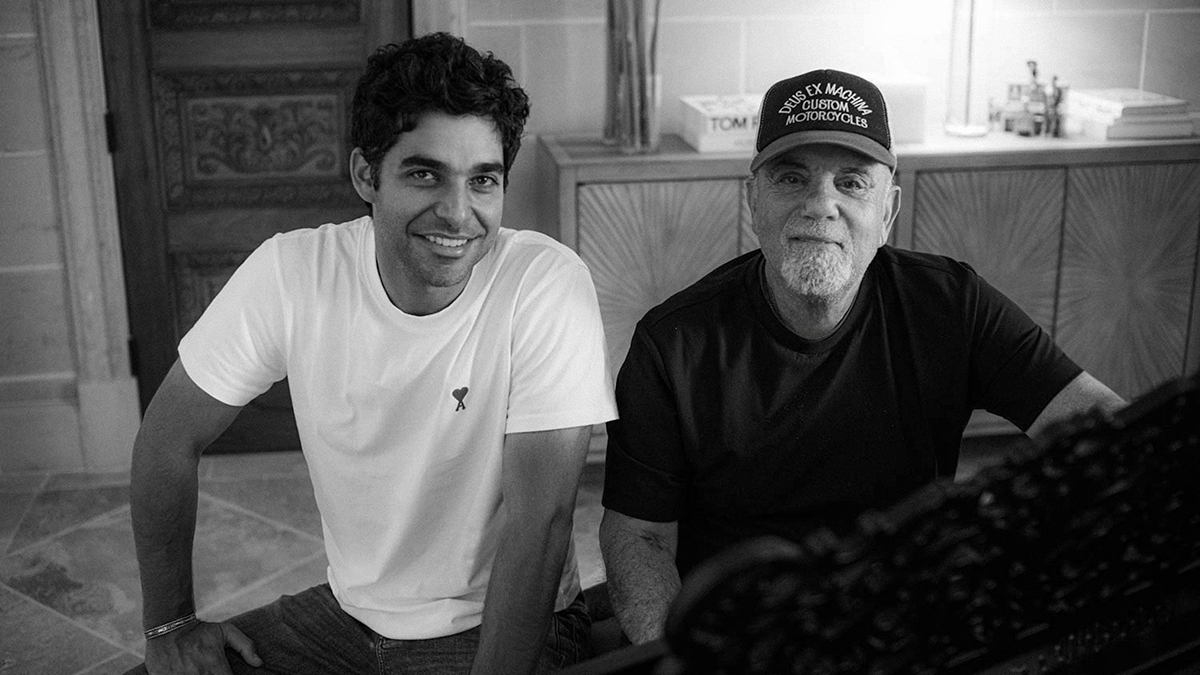
Like a musical Swiss Army Knife it seems that no task is too tough for Freddy Wexler. The Zelig-like master of the co-write seems to crop up in more places than he doesn’t, having co-penned and produced hits for Justin Bieber, Ariana Grande, Selena Gomez, The Jonas Brothers and more, and who counts legends from Billy Joel to Robbie Williams as close friends and collaborators.
Then there are his multi-million streaming original compositions courtesy of his presence in the team behind Netflix’s Emily In Paris. And his multi-platform production company, able to flip books into movies and TV shows, with his ability to spot and nurture raw talent and sheer love of music underpinning every project.
And there’s the small matter of ‘discovering’ one Stefani Germanotta (better known today as Lady Gaga). So how does one man end up in the right place at the right time so many times? We caught up with him at his LA home to find out.
Hey, Freddy. Whereabouts are you at right now?
“Right now I’m in my home studio and writing room. I’ve got my Neumann U67, my Tube-Tech CL 1B and my Undertone Audio MPEQ-1 mic preamp. You guys like gear, right? Those pres are amazing. They're built by the producer, Eric Valentine. I had the pleasure of working with Eric on an album. He’s such a genius. I’ve got an acoustic, an upright piano, a couple guitars in the back and that's it. I have an unbelievable studio just 25 minutes away - I mean, crazy - but I never really feel like I want to go. I like working right here.
Do you have any gear that you particularly love?
“I love my Juno-60. And I have a Mellotron. And a Minimoog. And I love a real piano when it's available. I've got my upright piano that I had in college here. So many people have played on it. It's stained, it's chipped but it has an energy that inspires, I swear.
Want all the hottest music and gear news, reviews, deals, features and more, direct to your inbox? Sign up here.
“And at my studio, I've got a beautiful 1920s Steinway with original keys. That's very important to me - original keys. I'm a big believer in instruments that have been played and used for a long time. I find that when I play a brand new instrument - and I've made the mistake of buying brand new pianos - I don't know, I'm not as inspired. I'm old school. I use Pro Tools. I should probably use Ableton more. But Pro Tools is what I know and there’s nothing quite like it for audio editing.”
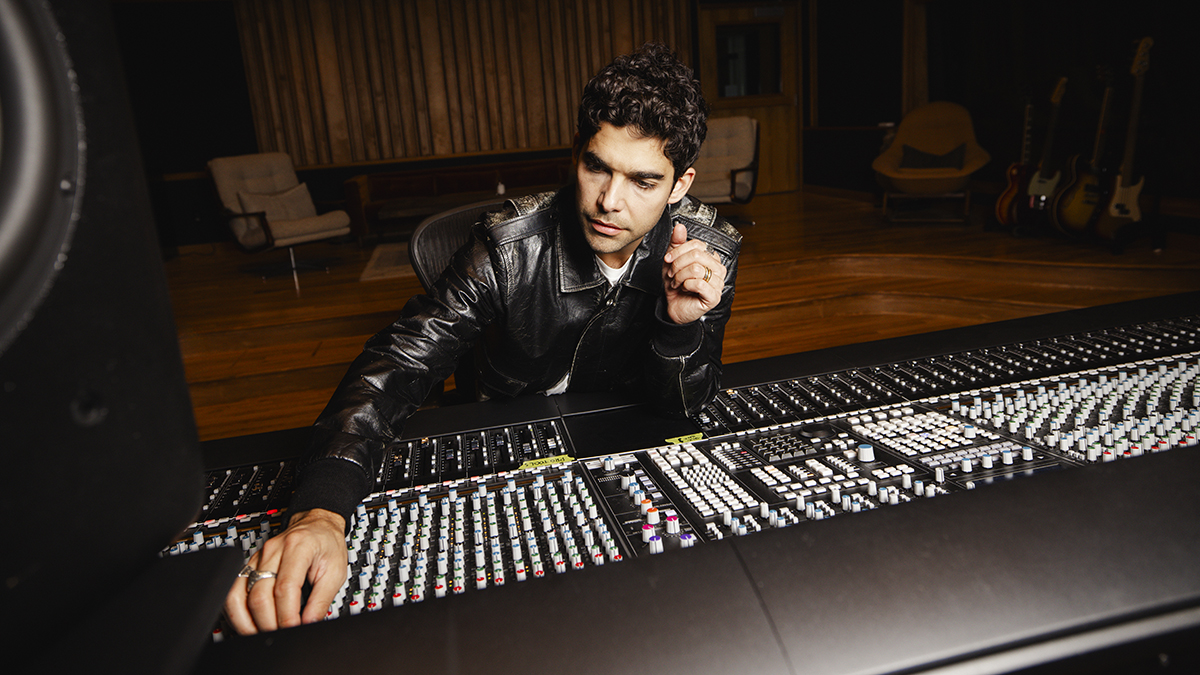
Let’s start with your songwriting. What’s your weapon of choice? Guitar? Keys?
“For me, it's usually the piano. That's where I feel most at home - sitting at the keys, letting melodies and chords lead the way. I grew up watching my mom play for cancer patients at Sloan Kettering Hospital in New York. And that was my first exposure to the piano. I would watch her hands and it became this kind of sacred, therapeutic space.
“I hate saying this phrase because it sounds so ‘trendy’ but I've always heard melodies in my head. So writing them down is kind of my real weapon of choice.”
So how would you describe what it is that you do? Are you a writer? An artist? Producer? Music entrepreneur…
“I'm a storyteller - a creator across several different mediums. So for 20 years I told those stories through songs and music, then about five years ago, I decided I wanted to tell those stories through other mediums.
“And so I built a multi-platform entertainment company that combines music and storytelling across film, TV, and other media. But I’m a storyteller first and foremost, who tries to incorporate music into every story, whether that's directly as a song or whether music underpins a different type of media like a film. Because of the unique structure we have, we're able to develop IP in a multi-dimensional way, taking a project from concept to franchise.
“So, as an example, I wrote a book called Everett Green, The Not-So-Christmas Tree. It's basically about a little palm tree who wants to become a Christmas tree because he wants to be famous. And what tree is the most famous tree in the world? The Christmas tree at The Rockefeller Center.
“But he never becomes that tree. In fact he never even gets out of Honolulu airport, but at the end of it, he learns the meaning of Christmas.
I hate saying this phrase because it sounds so ‘trendy’ but I've always heard melodies in my head
“So I have the book. Then I go to the publishing company and I co-write a song, a tropical Christmas song. I did the Jonas Brothers song Like It's Christmas but I wondered what Christmas is like for people where it doesn’t get cold? So this is my tropical Christmas song.
“I have three kids and I wanted to help put an amazing children's album into the world and there's a guy named Peter Schrupp and I’m working on his project, which is really cool. He's a really talented musician and singer. So we have Peter sing the song.
“Then we look at the film and TV side and I go to my connections and they attach to the film adaptation of the book, which will be a musical. And that's the company really.
“That's an example of how we're able to build these layered, hopefully lasting franchises with a single creative vision. We're kind of positioned to take a project and think of it in a really three dimensional way. And that's what I'm building - all with music underpinning it.”
Is there always a way that you approach your writing gigs? Or is every job different?
“I usually start with a question or a theme. Something real. It could be a feeling or a thought that's been bouncing around in my head. An issue I've been dealing with or something that's made me particularly happy. Although usually it's the more negative things that really get you going!
“When I wrote Stuck With U [for Justin Bieber and Ariana Grande], it came out of a moment with my wife, during quarantine, where I said,’ if I had to be stuck with anyone, I'm glad I'm stuck with you’. And that one line was enough to kind of get the whole thing rolling. I think that the key for me is starting with something true. When the concept is rooted in authenticity, the rest tends to flow naturally.
“What's harder for me is when I hear melodies in a vacuum. So often, walking down the street, I hear a melody and I sing it into my phone as a voice note. The process of coming back to that melody and trying to put words to that is hard. If the melody wasn’t created with any sort of thematic or emotional resonance you're tied to the syllables because there’s something about the melody that feels very inspired and you want to keep it intact… But it's like building music backwards.”
I'm intrigued by the idea of working in large writing groups. You’re certainly no stranger to collaborative writing. How does that dynamic work for you?
“Collaborative writing is a dance. There's always this ebb and flow and the best sessions are the ones where everyone feels safe enough to let their ideas fly without ego. Some days I step up and steer the session if I feel I have something to say or if there's an idea I'm passionate about. Other times, I step back and let other people take the wheel. The key for me is really knowing when to push and when to let go. And when that chemistry isn't there it’s freakin’ painful! Songwriting is one of those things where there's nothing greater than being in a great session and nothing worse than being in a bad one.
“I'm at a point in my career where I know how to gently ease out of those sessions or songs and say: ‘Hey, let's just talk, let's try something else,’ but when I was younger, the voice in my head would say: ‘You must finish this song! Even if it's not that good and even if the session is terribly painful, you must finish the song.’ But I don't really think great songs get written that way.
“But when the chemistry works, it's surreal, you know? Great, great collaboration is a bit like entanglement theory. Once you're locked in with another creative mind, there's this unspoken flow… It's part science, part art. That's where the best ideas come from.”
Do you prepare a lot? Come in fully armed with 20 chords and riffs to try out?
“I like to come in with a few lines or concepts saved in my notes. And those little concepts might be fragments that could turn into something bigger.
“But my real ammo comes from listening. I always want to listen deeply to the energy in the room. Because that energy can't be forced, it can't be manufactured, it can only be harnessed and sometimes it feels like the universe throws you a bone and all you can do is catch it before it slips away.
“The more years I spend doing this, the more I realise that, in the oddest way, the success is humbling because you realise you can't control it. You can't say ‘I'm going to deliver X number of hits this year.’ It’s just: ‘Hey, I was inspired this many times this year… And the other days, I wasn't!’”
How do you find the industry at present? Do artists have to be as much about self promotion as they are about writing or performing?
“I think the current landscape demands a skill set from an artist that is unnatural to the artist. And it’s a situation that would have precluded some of the greatest artists of all time from ever becoming successful and well-known.
“There’s an expectation for the artists themselves to be marketers and to be willing and able to spend a great deal of the time that they should spend creating, instead spending that time marketing themselves on Instagram or TikTok. That’s just something that - like other truths of life - you have to sort of accept. That's what it is.
“When I work with new artists, it's something I look at because - as much as I wish it wasn't important - I know that generally one of the essential ingredients for successful artists today is a willingness and an ability to connect with fans and to be their own greatest promoter.
“If you look at artists who are ambitious and driven and willing to hone their craft to the best of their ability, it does sadden me a bit that they can't spend the time that some of the greatest performers spent on either their instrument or their performance, because they're also expected to be on social media. I think we're asking a lot of them.”
Let me start by saying I take no credit for Lady Gaga’s success. But it is a special story and an amazing chapter the universe sort of gave me.
Previously you’ve worked bringing new talent to major labels. How did that gig work?
“I think I've always been somebody with a vision and the confidence to trust my vision. There are things that make me anxious but trusting my gut and being very assertive about that is not one of those things. And I think that put me in a position to be a good scout. I've also always been somebody who gets the job done. Who just makes it happen… It's kind of funny. People say: ‘How did you do this? How did you do that?’ And I'm like: ‘I don't know…’
“When I get very passionate about something, I don't calculate risk or probability into making it happen. I just say: ‘Oh, I'm going to do this.’”
Tell us about discovering Lady Gaga. That's a pretty good claim to fame.
“Let me start by saying I take no credit for Lady Gaga’s success. But it is a special story and an amazing chapter the universe sort of gave me - starting my journey in entertainment by putting me in a class in a summer course at NYU with Stefani Germanotta who, at the end of the class, heard something I worked on and asked if I would record and produce her demos.
“And very soon, while working with her, that instinct that I just spoke about was jumping out of my body and saying this girl is going to be a superstar. She was famous before being famous and you believed that within a few minutes of sitting with her.
“So I told some very powerful people the quote, you know, ‘I found the next Madonna’. Anyway, long story short, four months later, she changed her name to Lady Gaga and the rest was history.
“But, again, it's a story of trusting your gut. And remembering that underneath the greatest stars is just raw, unbelievable talent. They might not have the clothing right now. They might not have the name, or the followers. They might not have a lot of things. But if you have a really high bar for what is special, you're not gonna come across that many things that make you feel like that.”
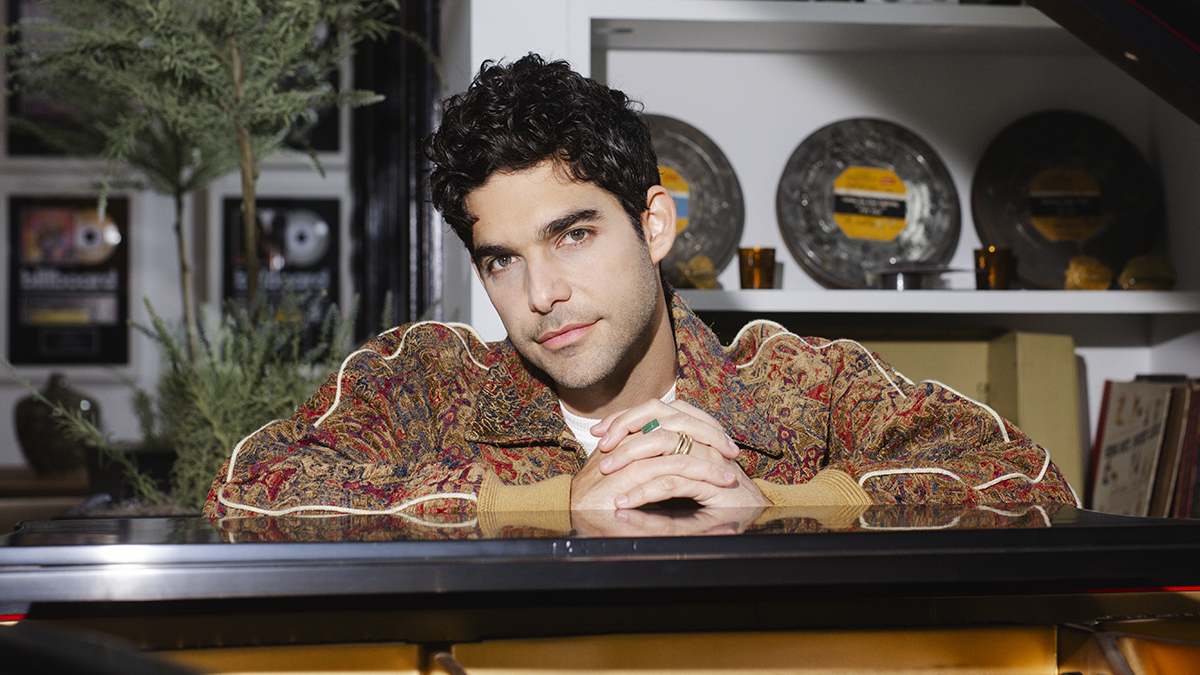
Do you think there’s enough support for new artists? Are enough people willing to step up and trust in the talent?
“I would say that while the world has changed and it's extremely risky to just sign acts who have nothing going on just because you think they have potential, I think it’s still important to combine a ‘data approach’ with passion and instinct and heart and still find that balance.
“I believe people need to be careful when going 100% data with their approach to signing talent, because while that approach may deliver a hit, I don't think that's going to give you your enduring superstars.
“I’m someone who nurtures talent. If I'm gonna sign somebody, you're gonna get 200% of me, I'm going to be there with you. I'm gonna add value, creatively, marketing wise, brand wise at every place that I can because I've been an artist. I know how hard it is. I am proud that for every artist I've worked with, whether they've gone on to be superstars or not, I can look back and say, I gave them the greatest shot I could.
Tell me about your early ‘writing commune’, The Brain House. What was the idea there?
“Well, I was always obsessed with creativity - the idea that some days you wake up with an idea and you're inspired. And on other days, you've got nothing. I was fascinated by the thought of optimising creative output in an industry where your entire livelihood is dependent upon you feeling inspired and how you could stack the deck in your favour.
And most writers, they had a team. Whether it was Lennon and McCartney, Elton and Bernie, Ashford and Simpson, The Stones… Whatever.
“And most writers, they had a team. Whether it was Lennon and McCartney, Elton and Bernie, Ashford and Simpson, The Stones… Whatever.
“And so in my last year of college I had been following around seven artists and writers on various platforms and I had made money from my first record deal. And so I decided to call each of these people and offer them the opportunity to come to LA for a year. I would pay for their flight, I would pay for their rent, I would pay for their recordings. But the catch was that they would all have to live with me and each other for one year, even though nobody had ever met.
“My hypothesis was that if a group of people who had not yet found success on their own could combine their talent and write about life together, I thought maybe that could result in some magic. And it did.
“By the end of that experiment, we had a huge list of celebrities walking through that house. That time in the house led to cuts with Selena Gomez, Demi Lovato, Jill Scott, Lil Wayne. These are records by a group of people who hadn’t had any hits and it became the beginnings of my company, The Brain Music. Every writer that was in that house ended up signing a publishing deal. Every artist that was in that house I ended up signing to joint ventures between my company and major labels. It was a really fun, exhilarating time.”
What was the first big break that came from that?
“I'd say my first big break was getting a call from Lil Wayne's team that my song [Novacane] was making Tha Carter IV. That put me on the map as a songwriter and opened the doors to more collaborations.
“That album went on to sell, I think, maybe five million copies at this point. And that was at the very end of that experimental year. So it was a much needed break.”
And how did you land Stuck With U with Justin Bieber and Ariana Grande?
“So that was one that I definitely helped to orchestrate. Right after the song was finished, I had a vision for how this song could be a hit. I told the other writers that this is going to go number one on billboard and they laughed and said: ‘Don't say that!’ And I said: ‘No, no. I'm only saying it because I know it.’
“And I picked up the phone and I called the heads of several major labels and I told them the vision. I said if we get this song out right now, while people still have to stay home and are stuck with each other, then we can have a love song that speaks to this exact, crazy, surreal moment in history.
“And so I was getting calls that day from huge executives. ‘What about this artist? What about that artist?’ And I'm talking big artists… But I had my eyes set on an A+ artist. So I would say: ‘No, thank you. You gotta call me back with something bigger.’ And this was going on all day.
“Finally, Scooter Braun called me. He’d heard the song and he said, ‘What about Ariana?’ And I said, ‘Now we're talking.’ And that's how it started, that same day. Ariana calls on FaceTime and she's heard the song. And that got Bieber on it. And we all agreed to donate a portion of the revenue to charity - to First Responders - and the rest is history.
“I think the song has raised over $5.5 million so far for First Responders, which makes it one of my kind of proudest moments. Now every project at my company is tied to a charity. Without exception.”
Finally, Scooter Braun called me. He’d heard the song and he said, ‘What about Ariana?’ And I said, ‘Now we're talking.’
Tell us about the Emily In Paris project and writing and publishing the songs in the show with Ashley Park. How does that come about?
“It came about after an initial meeting with Ashley during Covid over Zoom where we totally hit it off. Like as if we'd been friends forever. She was meeting Freddy the film and TV producer, more so than Freddy, the songwriter and record producer, but we both shared an undying love for music.
“So we talked a lot about music and songs and later on Darren Starr - the legendary creator of all these hit shows [Beverly Hills 90210, Sex And The City…] - called me and asked if I would come on board and write and produce original songs for Emily In Paris.
“And it wasn't until after I'd recorded Ashley that she said, ‘You know, I'm the reason you’re here. I told Darren he should call you.’ And I said, ‘I didn't know that. Thank you so much!’
“But yeah, I've been working on the show since season two and my role was to bring one original song, per season. The first song was called Mon Soleil and it really took on a life of its own. I think it has over 85 million streams online which, for a non music show - this is not Glee, or whatever - is kind of unheard of.
“And it's a testament to Darren's writing and vision to Andy Fleming's direction and really to Ashley Park and her voice and the character of Mindy. So now my company is the record label for Emily In Paris and I co-wrote and produced this new song Beautiful Ruins for the show. “
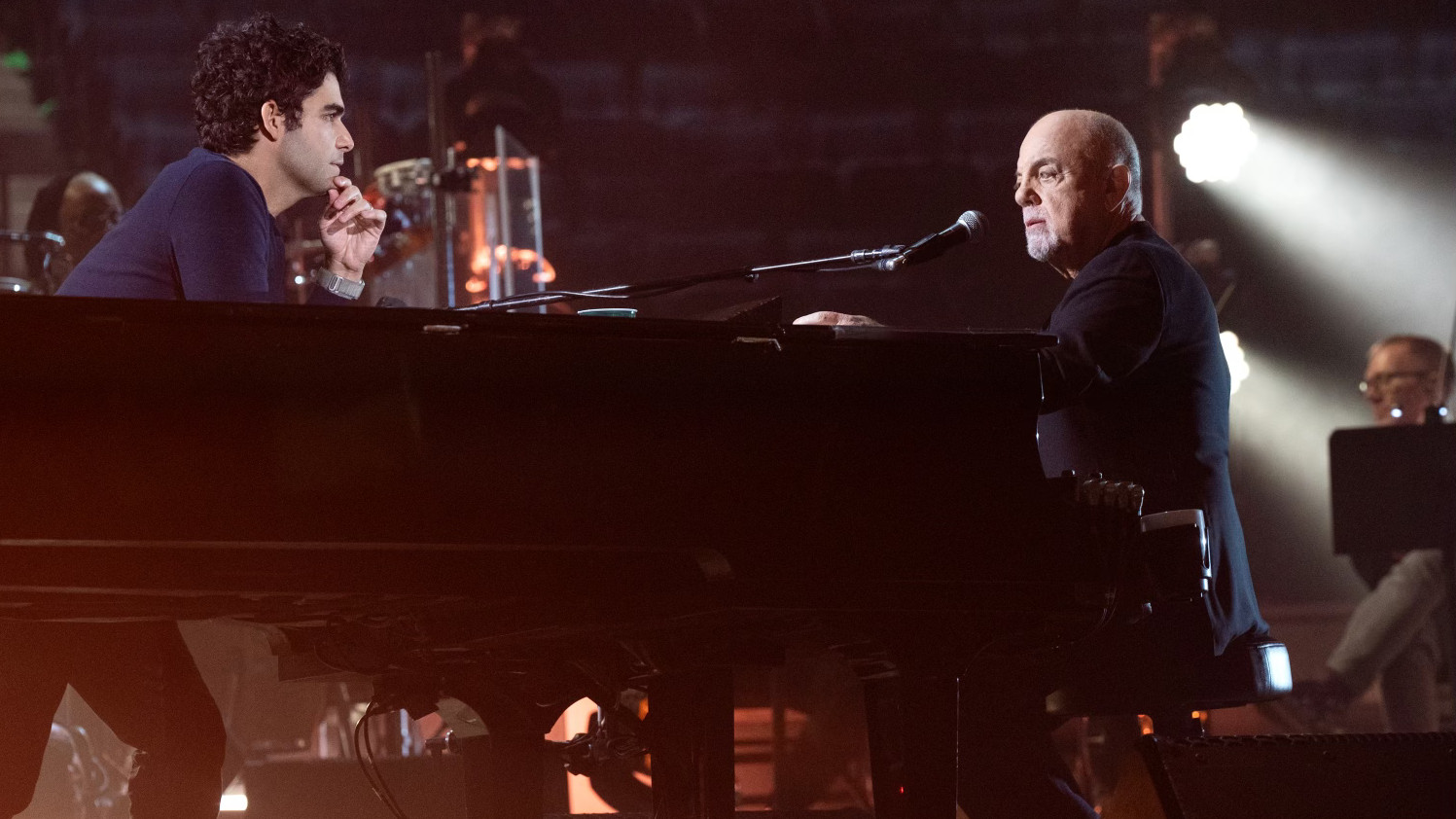
Tell me about bringing Billy Joel back to music lovers everywhere. Turn The Lights Back On is such a great fit for him.
“I think Billy would say there was no need to make any more songs. And maybe, as a fan, I felt the need for one more.
“It all started with my wife arranging a meeting for my 35th birthday, with Billy. He thought he'd just be signing an autograph and leaving. But we ended up talking for hours. It was this crazy two-hour period where we went from ‘check please’ to ‘come to my house’ to ‘come to my house and play me some of the best songs you've ever written’!
“But, essentially, that day led him to sharing his unfinished songs with me, which sparked a year and a half of collaborating and bonding. Turn The Lights Back On was a song that I'd started and, when he heard it, he connected with it.
“One of the things that Billy and I bonded over was a sort of quirky thing we shared when it came to our process of writing, which was that oftentimes we would imagine we were other people while writing. So he might be channelling Ray Charles on a song… And, of course, nine times out of 10, I'd be channelling Billy Joel.
“So I started the idea For Turn The Lights back on because I love his music. And so I think when he heard it, it sounded like a song or an idea that he would have started on his own. I can't put into words what it meant to write and produce a song with someone who's been my hero.”
And speaking of living legends, you’ve been working with Robbie Williams for his Better Man biopic.
“So, like Billy, Robbie has become a really close friend. And the two are connected in that I got a call from Robbie one day and he said, ‘I've been following what you did with Billy Joel and I think it's great and I'd love to meet. Are you in LA?’ So he invited me over to his house, and when I arrived he was in mid sound bath… You know… [mimes the gentle stroking of singing bowls and the striking of gongs…]
“So I joined in. It was me, Robbie and Joey McIntyre [from New Kids on the Block…] and a bunch of other people, with someone leading this sound ceremony. I ended up staying there for five hours and we totally hit it off.
“Admittedly he’s not someone that I was as familiar with as I wish I had been, although it kind of makes it all the better because it's almost like I'm discovering this superstar for the first time. He's a rock star. His voice is exceptional. His instincts are great. Sometimes you work with artists who change a line and the change doesn't really do much for the song. And it's kind of like, ‘OK, I guess this feels more personal to them now or whatever…’ But when Robbie changes a line, it really makes the song better.
“You know, you've heard that sentiment in songs where it’s ‘kiss me as if tonight's the end of the world’? Well, there was a line in a chorus and Rob didn't think that was so good. So he changed it to ‘hold me while the world ends’. So we go from ‘as if the world is going to end’ to ‘the world is actually ending’. It's such a rich, huge and profound change to how cool that line is.
“He and director Michael Gracey [who directed The Greatest Showman and is the director of Robbie's upcoming biopic Better Man] had been going back and forth on different end title songs and Rob asked if I'd help work on one with him. Of course, I said yes.
“There was a real vision for what they wanted. Michael Gracey is very specific. He knows exactly what he wants. And I remember, he said that the end title song should feel like a hug - a hug after coming out of this film where it takes you on this dynamic emotional roller coaster of highs and lows. But that’s Robbie. That's been Robbie's life.
“I had an idea and I shared it with Rob and he loved the progression and we finished the song. There's a big difference between writing a Robbie Williams single and writing a song that’s the end title for a film that's taking you on such an emotional journey. It needs to work. But, against all odds, Michael Gracey liked it. And that’s the song Forbidden Road.”
Is there anybody that you haven't worked with as yet that you'd like to work with?
“Absolutely. I'd love to work with Chris Martin. And Adele… John Mayer… Beyonce. I love classic timeless artists also. I'd love to work with Thomas Rhett. I'd love to work with Chris Stapleton. There are a number of country acts that I'd love to work with. I'm gonna be spending more and more time in Nashville. I'm loving the music that's being made there.
“And I want to work more with Laufey - she's a half Icelandic, half Chinese jazz singer. She’s huge. She’s brought jazz to Gen Z. She’s so talented. I worked on a song on her last album which won a Grammy. Hopefully I can work with her again.
Is there any advice that you've been given or that you could pass on to anyone looking to get into songwriting and producing?
“The best advice I ever got was to stay true to yourself. No matter what trends come and go. Authenticity never gets old.”
What are you working on right now and what have you got coming up?
“I'm continuing my work with Emily In Paris as the label for the original music and we've got some fresh ideas coming up that I think fans will love.
“I'm excited about Rose from BlackPink who has an album coming out. I was lucky enough to be a part of that.
“There's an amazing comedian I work with named Sebastian Maniscalco, who I have become a sort of creative right hand to. Sebastian just broke the records at Madison Square Garden. We're working on a song that I think could be really big and I'm excited for people to hear that.
“I've got a slate of podcasts coming out on iHeart. I'm producing a handful of movies and TV shows.
“One film that I'm really excited about is the story of a championship-winning all deaf football team, who made history. That film is at MGM Amazon. I’m really excited about that and I'm excited to work alongside a deaf music producer and composer to create a groundbreaking soundtrack. My vision for that is how do you create something that is felt as much as it's heard?
“Can you play with bass frequencies and notes so that you just feel the melody up and down your body? Is there a way to create a soundtrack that all people experience the same way? I'm really excited about that.
“All these projects that I work on in other mediums, whether they are exactly music driven or not, they all touch sound in an interesting way. Everything somehow comes back to sound for me. It's just the centre of my life.”
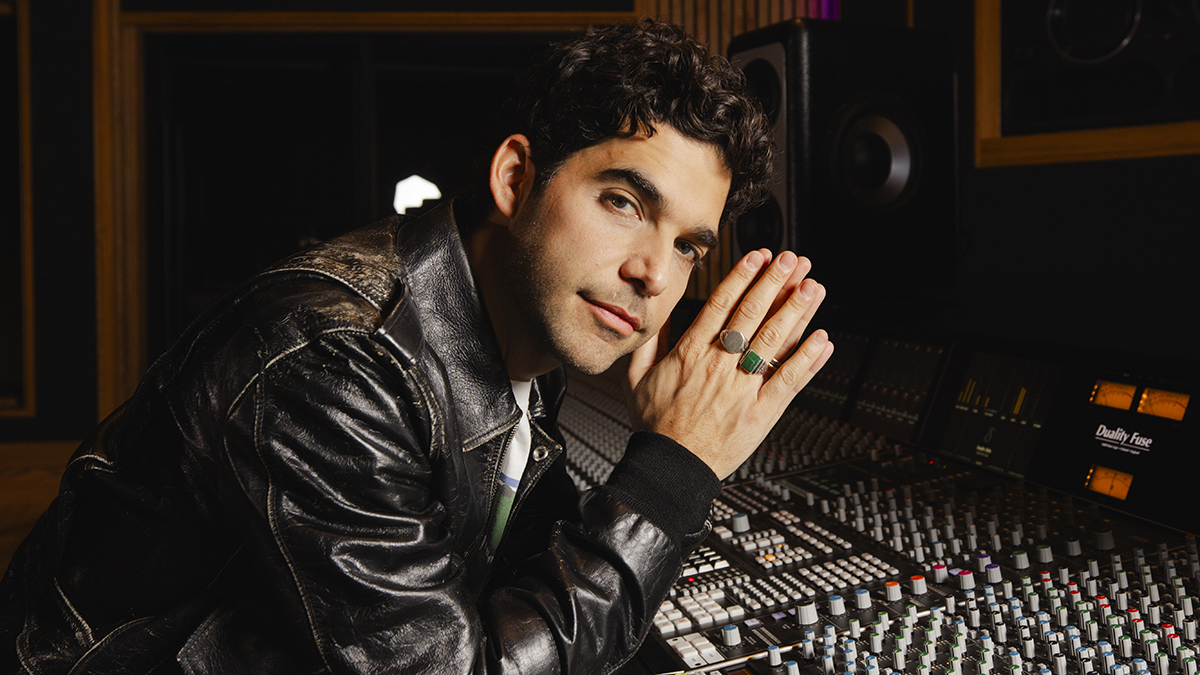
Daniel Griffiths is a veteran journalist who has worked on some of the biggest entertainment, tech and home brands in the world. He's interviewed countless big names, and covered countless new releases in the fields of music, videogames, movies, tech, gadgets, home improvement, self build, interiors and garden design. He’s the ex-Editor of Future Music and ex-Group Editor-in-Chief of Electronic Musician, Guitarist, Guitar World, Computer Music and more. He renovates property and writes for MusicRadar.com.




